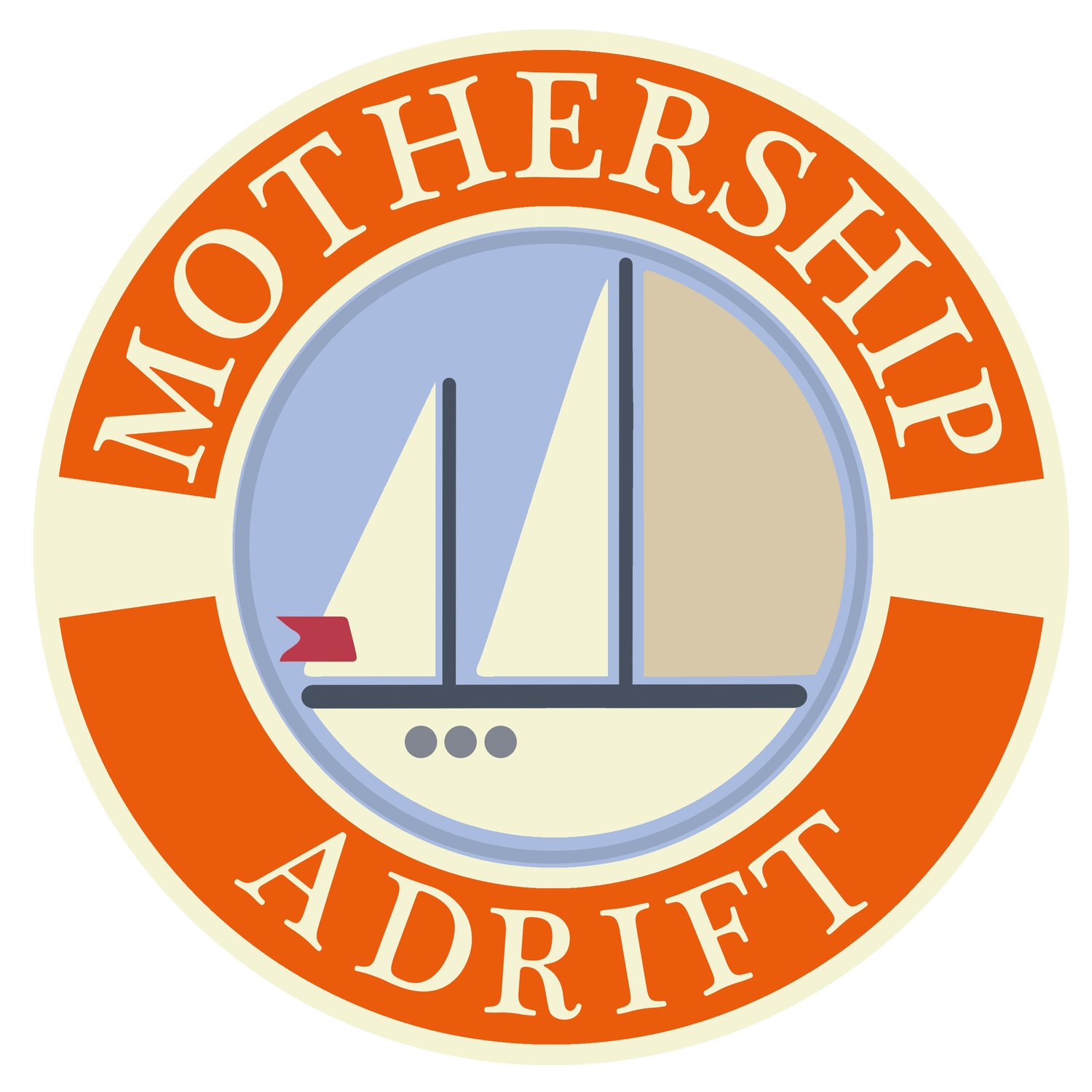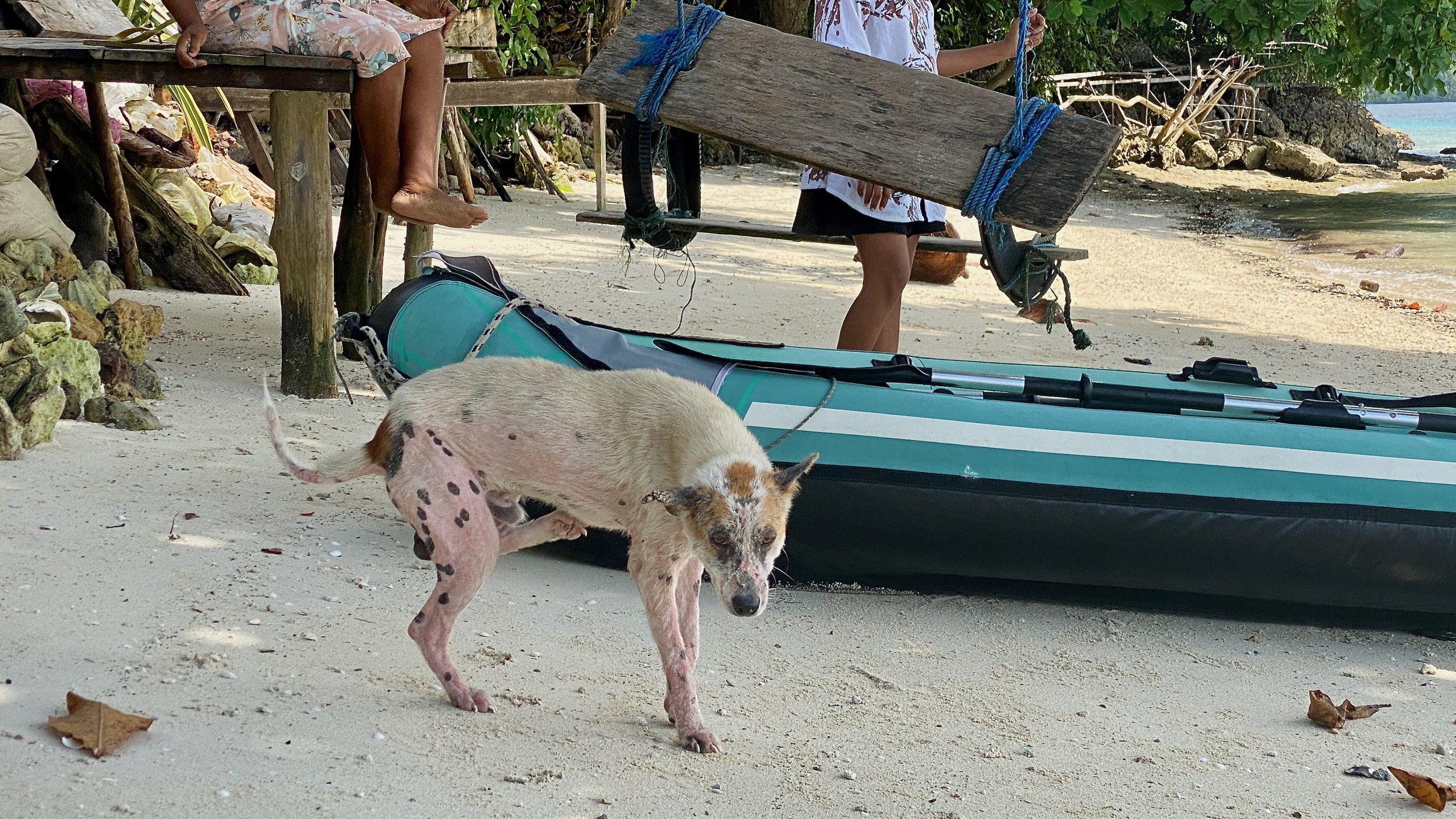DEFCON 9: What about Health Care and Insurance?
01-02-10
An overnight stay in hospital for Yewan after suffering concussion - Almerimar, Spain.
“Make your choice, adventurous stranger, Strike the bell and bide the danger, Or wonder, till it drives you mad, What would have followed if you had”
The Fear Industry
Insurance perhaps sums up what is at the heart of all DeFCoNs in this series - fear of the unknown.
There is a multi-billion dollar industry dedicated to stoking your fear of the world. Insurance companies frequently highlight worst-case scenarios to instil a sense of dread and urgency. They promote stories of financial ruin, costly medical bills, and irreparable damage to create a narrative that positions their products as the only safeguard against catastrophe.
Our Minimalist Approach to Insurance
I’ll put my cards on the table here and admit we travel with the bare minimum health, travel, and boat insurance and only really do this to meet the requirements of certain countries and marinas. After prolonged disputes over past insurance claims and unprecedented price hikes in premiums over recent years, many cruisers are revisiting their relationship with insurance companies.
These days we never sail to the calendar, only to the weather, sea conditions, and the rhythms of the seasons. Mariners have sailed for thousands of years using these methods, and that’s a pretty thorough endorsement. Add to that to the unprecedented amount of data we have at our fingertips today and cruising with a healthy dose of preventative maintenance and caution can be very safe.
Yewan Learning to Scuba Dive at the age of 9 - one of the many 'dangerous' sports you will need extra cover for - Colombia
So, instead of paying hugely inflated insurance premiums we made the decision to combine our 'minimum insurance approach’ with putting money aside, into a generic ‘emergency fund’.
Health Insurance: Affordable and Accessible
This might come as a revelation, especially to folks from the USA, but the cost of family healthcare around the world is really quite affordable, even when using private healthcare providers. In fact, many countries have a free or subsidised healthcare system or reciprocal agreements with other countries. In many cases, paediatric care for kids is free. Research your options in each country before travelling and you might be pleasantly surprised.
We’ve had more than our fair share of mishaps over the years. Besides the almost inevitable lost baggage on airlines (thanks Air New Zealand, Caribbean Airlines, American and Delta!), we’ve suffered from acute hair loss in Turkey, severe fever in Tasmania, broken fingers in Martinique, concussion and dental surgery in Spain, multiple dog attacks in Greece, suspected dengue fever and Covid in Panama.. the list goes on. I was even bitten by a rabid dog in a Tunisian boat yard - buy me a beer sometime and I'll tell you that story!
Possibly the most dangerous animal you will come across are semi-domesticated dogs.
Most of the above required hospital visits and, in some cases, operations and overnight stays.
However, in our seven years of traveling to some fairly inhospitable and off-grid locations around the world, we have never withdrawn from our emergency fund anywhere near what we would have paid for fully comprehensive, travel or medical insurance over the same time.
The largest cost would have been for a finger operation for Irenka in Martinique (€1800 / $1900) but because of a reciprocal UK agreement with France, it actually cost €200 / $215 for bandages, splints and creams for post-op care.
Irenka in post-op after having titanium pins fitted to a broken finger - Martinique
Boat Insurance: Hidden Caveats
Likewise with boat insurance. Our only boat claim was for a destroyed dinghy in Spain after it was ripped apart on a cleat. However, we managed to rescue the outboard and negotiated a discount for displaying prominent advertising decal on a new one. The loss of a no claims bonus didn’t really justify claiming on the insurance in the end, which begged the question - why did we need it insured in the first place?
When our premium shot up after the COVID pandemic, we drilled down into the small print to see what we were actually covered for so we could forensically compare cover. What we discovered was a myriad of caveats that meant we were barely covered for anything other than total loss. And, even that would have been tricky to claim because our bilge pump (fitted as standard to our model and make of boat) turned out to be below the minimum standards required by the insurance company.
(Not our boat!) Drilling into the fine print we discovered we weren't even covered for total loss because our bilge pump was below minimum standards set by the insurance company - Klein Curacao.
The Cost of Comprehensive Insurance
By the time you add up insurance costs to mitigate against all scenarios, you face setting aside a huge chunk of your travel budget before you’ve even left home. And the cost doesn’t stop at just the premiums. They tell you what equipment to have on your boat and how often it needs upgrading and servicing. There are excesses, disclaimers, clauses, and restrictions about where you can go, when you can go, and what you can do when you get there. They have specific yards and suppliers that you must use and procedures you must follow otherwise the claim becomes invalid. And the following year you have to pay the premium again.. and again the year after.. and the year after that.
Your schedule and to some extent your lifestyle can be dictated by an algorithm or faceless clerk thousands of miles away who has no clue about weather windows, boat maintenance, or even cruising, which in some case can paradoxically put you in even more danger. For instance, I’ve known cruisers get into terrible difficulty leaving safe ports in the midst of bad weather because their insurance wouldn’t cover an overstay.
(Again, not our boat!) I’ve known cruisers get into terrible difficulty leaving safe ports in the midst of bad weather because their insurance wouldn’t cover an overstay - Fiji.
Balanced Decisions with an Honest Broker
Am I advocating for minimal insurance for everyone? Not at all. We do have third party cover with emergency medical cover for crew through Pantaenius Yacht Insurance, one of the few companies who still offer third party cover for small sailboats. What I’m saying is, don’t let insurance become an obstacle. An honest, reputable broker or company can help make a balanced decisions about your insurance needs, offering genuine protection without preying on your fears or your wallet.
They should be a reliable ally in the event of an emergency, guiding you through the claims process and ensuring that you receive the support you need. Their expertise and personalised service can and should transform the often daunting task of purchasing insurance into a straightforward and reassuring experience.
In that respect, a personal recommendation by an experienced cruiser is invaluable. Never be drawn in by an advert in a cursing magazine or affiliate link on website or YouTube channel. In most cases these are either paid for adverts or dropped in by Google and not genuine endorsements.
Seek out local knowledge and develop situational awareness - Townsville, Australia
Insurance Alternative Sources
Before looking into new cover, it might be worth checking other sources of insurance you might already have access to. Below are some examples, but as always be sure to read the fine print to understand the extent and limitations of the coverage provided.
Credit Card Company Perks - Many credit card companies offer insurance as a perk for cardholders.
Bank Accounts - Certain bank accounts offer insurance as part of their benefits package. This is usually only available with premium accounts, so might be worth considering an upgrade.
Employer-Provided Insurance - If it’s a sabbatical you’re taking, some employers offer travel insurance as part of their employee benefits package - especially if you still work remotely, part-time. However, it can sometimes include coverage for personal travel too.
Boating and Cruising Associations and clubs - Membership programs such as RYA, ASA, OCC and similar organisations, often provide discounted boat insurance options to their members.
Mobile Phone Providers - Some mobile phone providers offer travel related insurance as an add-on service especially for device protection.
Also, when dealing with insurance companies, be cautious about what you disclose. Don’t use the word, ‘live-aboard’ because for some reason this sets alarm bells ringing. Instead use the word ‘sabbatical’. This is obviously a lot more convincing if you still own your own property back home.
The Adventurer’s Perspective
Know that there are cruisers out there with little or no insurance - adventurous people who just deal with situations as they arise and don’t worry about things that might happen. They don’t take care; they take chances. They don’t avoid risk; they embrace uncertainty. They feel the fear and do it anyway because they weren’t born to be risk assessors or loss adjusters, they were born to be adventurers.
Darry swimming with black tipped reef sharks - develop resilience and trust in your abilities and the adventure itself - Bora Bora, French Polynesia
Do your own research and listen to the collective wisdom of seasoned cruisers. Seek out local knowledge, develop situational awareness, never be coerced and above all, trust your instincts.
The greatest rewards of adventure travel often come from stepping out of your comfort zone, developing resilience, and trusting in your abilities and the adventure itself.
If you want more straight-talking tales from life afloat, warts, wins, water pumps and all, then you’ll love our upcoming book. We're inviting early readers to join the pre-launch crew and get behind-the-scenes access as we wrestle it into shape. It’s honest, unfiltered, and occasionally useful. Sign up here to get involved, give feedback, and be part of something that’ll either be a bestseller or a brilliant cautionary tale.









